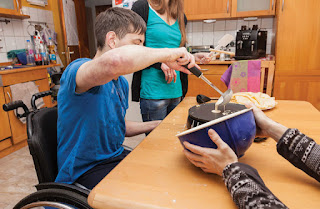How to Become a Personal Care Assistant (PCA)
Embarking on a career as a personal care assistant can bring immense fulfillment as you positively impact the lives of individuals requiring support due to age, illness, or disability. This comprehensive guide provides the necessary steps, skills, and qualifications to pursue this meaningful profession.
In this article, we will learn all the aspects of being a personal care assistant and how it can impact others' lives—the eligibility criteria, skills required, qualifications, etc. So let's dive into a new journey for you.
Understand the Role of a Personal Care Assistant
To become a personal care assistant, it is crucial to grasp the role's significance and associated responsibilities. Personal care assistants work closely with individuals, providing vital assistance in daily activities such as bathing, dressing, grooming, meal preparation, medication reminders, and light housekeeping. Beyond practical help, they offer companionship and emotional support, often meeting clients' transportation needs. Building trust through empathy, patience, and effective communication is at the core of fostering strong patient relationships.
Obtain the Necessary Education and Training
While a formal education is not always mandatory, having a high school diploma or equivalent is advantageous. Various vocational schools, community colleges, and healthcare organizations offer specialized training programs tailored to personal care assistants. These programs cover essential topics like personal care techniques, basic medical knowledge, infection control, and ethical considerations.
Moreover, pursuing certifications such as Certified Nursing Assistant (CNA) or Home Health Aide (HHA) can significantly enhance your career prospects and equip you with advanced skills and knowledge. These certifications typically involve completing state-approved training programs and successfully passing examinations.
Develop Essential Skills
To excel as a personal care assistant, cultivating specific skills is essential. These skills include:
a) Empathy and Compassion: Demonstrating genuine empathy and compassion allows you to forge meaningful connections with patients, enabling you to understand their unique needs and provide valuable emotional support.
b) Effective Communication: Clear and empathetic communication is vital in understanding patients' preferences, conveying instructions, and collaborating with healthcare professionals to ensure coordinated care.
c) Observation and Reporting: Developing keen observation skills help you identify physical and emotional changes in patients, enabling you to provide timely updates to healthcare professionals and ensure their well-being.
d) Patience and Flexibility: Patients may have diverse needs and face challenges that require adaptability and patience. Remaining flexible in various situations is critical to providing personalized care.
e) Time Management and Organizational Skills: Efficiently managing tasks and schedules ensures patients' needs are met promptly, contributing to their overall well-being and comfort.
Gain Practical Experience
Acquiring practical experience in the field is invaluable for personal care assistants. Actively seek employment or volunteer opportunities at healthcare facilities, nursing homes, or home care agencies. These experiences allow you to work alongside experienced professionals, gain hands-on skills, and deepen your understanding of patient care dynamics. Observing and learning from experts in the field will further enhance your expertise and confidence.
Research and Comply with Legal and Regulatory Requirements
To uphold professionalism and provide quality care, familiarize yourself with your region's legal and regulatory requirements for personal care assistants. Certain areas may mandate licensure, background checks, or specific training programs. Staying informed about these regulations ensures compliance and helps you maintain your clients' highest standards of care.
Conclusion
Pursuing a career as a personal care assistant offers immense rewards and the opportunity to impact the lives of individuals in need positively. You can embark on this meaningful career path by understanding the role's significance, obtaining the necessary education and training, cultivating essential skills, gaining practical experience, and adhering to legal requirements. Remember, being a personal care assistant requires dedication, empathy, and a genuine desire to make a difference in the lives of those who require care and support. Your compassion and commitment can bring comfort and improve the quality of life for individuals needing assistance.
Take the first step towards a rewarding career as a Personal Care Assistant with NILP's comprehensive PCA program. Join us today to gain the skills, knowledge, and practical experience necessary to make a meaningful difference in the lives of needy individuals. Benefit from expert instruction, a comprehensive curriculum covering personal care techniques, medical knowledge, communication skills, and valuable hands-on training. Start your journey towards a fulfilling profession by enrolling in NILP's PCA program and embark on a path where you can positively impact the lives of others. Don't miss this opportunity—take action now!


Comments
Post a Comment